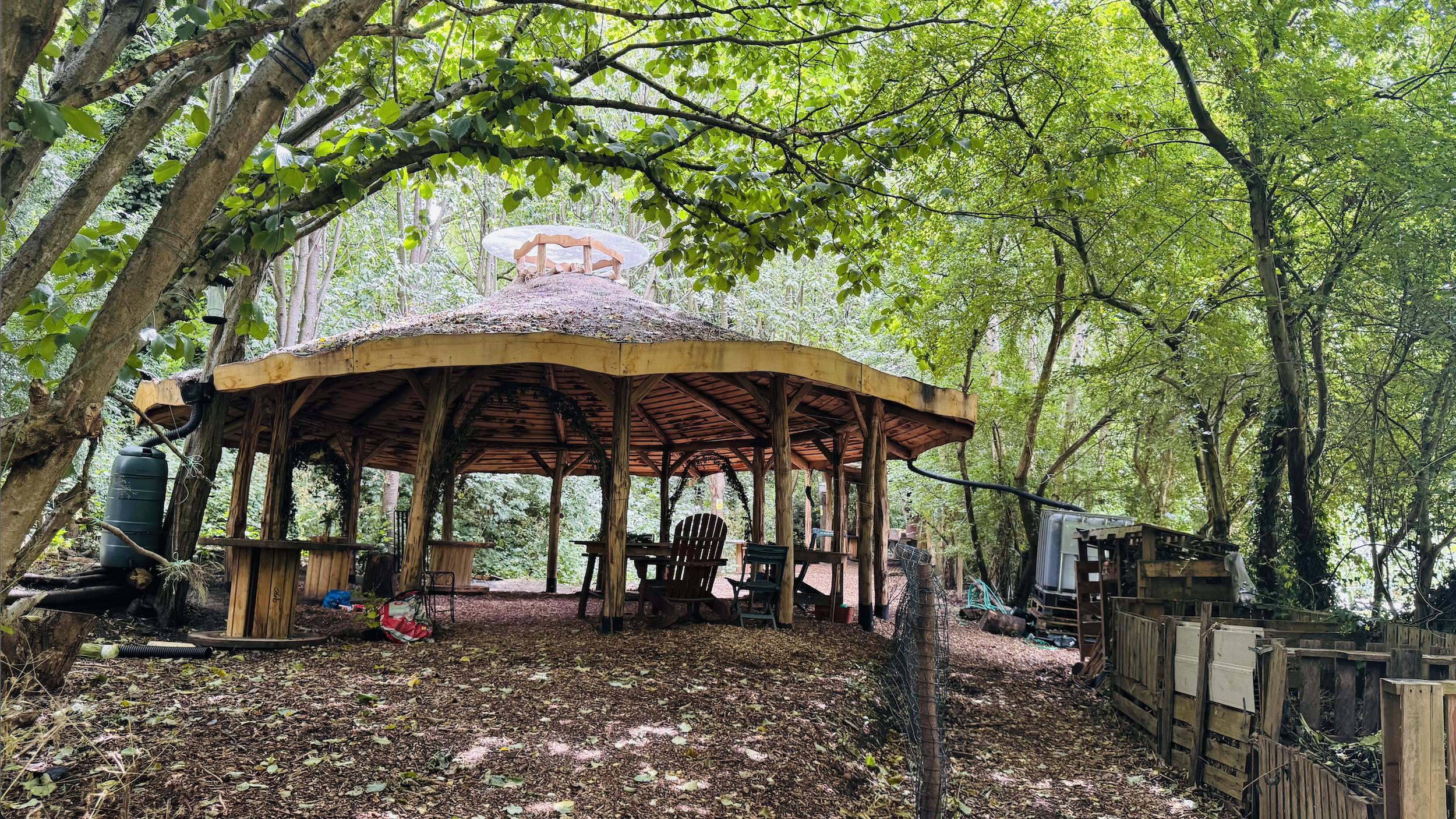A creative exploration of ecology, kinship and belonging
The Nature of Community
founded by poet and therapeutic practitioner Hayley Frances as part of her Black Country Fellowship, blends hands-on ecology, artistic practice, creative expression, and bardic gathers to ask:
What is the nature of community?
The Nature of Community is a community-centred, artist-led exploration of ecology, care, and kinship founded by poet and therapeutic practitioner Hayley Frances as part of her Black Country Fellowship.
We gather in the understory where roots, soil, and story meet guided by nature as our elder and oldest teacher. Here, community is not only human. The land, plants, waters, and creatures shape the way we come together, remember, and reimagine how we live with one another.
The project blends hands-on ecology, artistic practice, creative expression, and bardic gathers to create spaces for listening, making, and storytelling. These gatherings honour both ancient and living traditions, holding room for ceremony, play, grief, and renewal.
Through seasonal workshops, intergenerational gatherings, and quiet acts of documentation, we explore a shared question: What is the nature of community? Each meeting is an exchange between people, place, and the unseen connections that bind them, where art becomes a way to notice, tend, and deepen our belonging.
Community Offerings
Seasonal Gathers at Hawbush Gardens
Multigenerational days that blend poetry, voice and simple ceremony with practical, land‑led making and ecology. Expect gentle structure, time outdoors and room for real conversation.
Social Prescription Writing Circles at Riverside House
Small‑group poetry therapy sessions to cultivate and commune on the nature of community with those who need it; for rest, expression and self‑authorship *supporting mental health difficulties, social isolation, neuro-divergence and autistic groups.
Community-led practices, research, and gathers are guided by Dudley, yet to be fully outlined, ensuring the work grows from the place itself and reflects the voices, needs, and ecologies of those who live here.
The Approach
Poetry & Bardic Thread – Poems as wayfinding, alongside song, storytelling, and spoken word. Shared readings, writing prompts, and improvised offerings to honour place, memory, and lived experience.
Ceremony, Lightly Held – Simple openings and closings, consent-led participation, and space for remembrance, celebration, and repair.
Hands-On Ecology & Land-Based Arts – Plant tending, foraging ethics, natural materials, movement, and land-based artmaking. Learning through making with what the season and place offer.
Food as Connection – Memory-led food sharing, simple preparations, and the stories held in ingredients, recipes, and kitchen tables.
Access-First – Calmer pacing, clear signposting, and options to step in or out. Sensory-aware spaces and responsive facilitation to meet different needs.
Hawbush Herbalism
*Rebel Botany
An introduction to meeting plants as neighbours rather than resources. We’ll explore local herbs through touch, scent, and taste, while learning safe, respectful ways to gather and use them. Sessions include sensory mapping in the garden, plant storytelling, and discussions on herbal heritage and ethics.
Root • Emerge •
Flourish • Gather
A seasonal exploration of how we root, emerge, flourish, and gather — in ourselves, with each other, and with the land. Using movement, simple ceremony, natural materials, and shared creative expression, we’ll work with these cycles as they show up in the garden and in our own lives.
Food Stories
We gather around food as memory and connector. Participants bring their own experiences to the table as we share small “tasting pots” and simple preparations, while exchanging recipes, family traditions, and cultural food histories. This is as much about conversation as it is about cooking — food as a living archive of place and lineage.
Organic Embodiment:
Ecologies of Care
Bardic, grounding spaces to arrive in your body and in community. We’ll explore breath and voice work, slow movement, and simple land-based making using natural materials. The focus is on noticing how we care for ourselves, each other, and the land — and how that care might look and feel in everyday life. No performance, no pressure, just shared presence.





